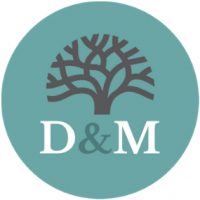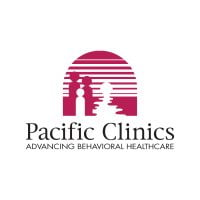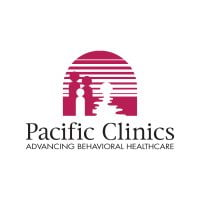Glendora Recovery Center
Drug Rehab Center in Glendora, California
Glendora Recovery Center is an accredited drug and alcohol rehabilitation facility in California that provides a range of treatment services, such as inpatient, outpatient, detox, residential care and aftercare support programs, all tailored to suit the needs of individuals seeking to beat their addiction.
About Glendora Recovery Center in California
Glendora Recovery Center is a reputable drug and alcohol treatment facility located in Glendora, California. This center specializes in providing comprehensive care for individuals struggling with drug addiction, opioid addiction, alcoholism, and dual diagnosis conditions. With LegitScript Certification, Glendora Recovery Center is recognized for its adherence to high standards of quality and safety. The center offers a range of treatment options, including inpatient and outpatient programs, aftercare support, detoxification services, partial-hospitalization, and residential levels of care. Furthermore, Glendora Recovery Center accepts private health insurance, making their services more accessible to those seeking help and support for their addiction or substance abuse issues.
Glendora Recovery Center offers a diverse array of services to address addiction and substance abuse. Through their inpatient and outpatient programs, individuals receive personalized treatment plans tailored to their unique needs and circumstances. The facility also provides aftercare support to promote long-term recovery and help individuals transition back into their everyday lives. Additionally, Glendora Recovery Center offers detoxification services to assist clients in safely withdrawing from drugs or alcohol. For more intensive support, the center offers partial-hospitalization and residential levels of care, ensuring that individuals receive the comprehensive treatment they require.
Genders
Ages
Modality
Additional
Accreditations

LegitScript
Conditions and Issues Treated
Opioid addiction starts when a person becomes addicted to legal or illegal opioids. The addiction can happen quickly, in just a matter of days. Opioid withdrawal can be extremely uncomfortable and lead the user to continue to use even if they want to quit. Stopping using an opioid requires medical observation. Sometimes inpatient treatment with a medically supervised detox is necessary for managing the withdrawal process while learning lasting tools for maintaining recovery. Medications may be used in some cases of opioid addiction.
Opioid addiction is one of California‘s most prominent forms of addiction. It’s treated by detoxifying the body so that the chemicals from the medications no longer impact them and by therapies to correct behavior and target the root of the problem.
Levels of Care Offered
This center offers a variety of custom treatment tailored to individual recovery. Currently available are Aftercare Support, Detox, Inpatient, Outpatient, Partial-Hospitalization, Residential, with additional therapies available as listed below.
Detox is the first step of rehab. It involves giving a person time to get the toxins out of their body. During detox, the patient gets ill and they will often start using again to get rid of these unpleasant feelings. That’s why it’s so important to have a Glendora medical professional at Glendora Recovery Center present. A California medical professional will make sure patients don’t start using during detox. They will also provide medication to ease their symptoms and coach them through on a mental level.
Individuals who are suffering from severe addiction or have a high risk for dangerous health concerns are often recommended to receive inpatient treatment.
Choosing to enter an inpatient treatment program is beneficial for people who are suffering from severe addiction, or who have a high risk for dangerous health concerns.
Inpatient treatment is beneficial for:
- People who have a history of severe withdrawal.
- People who have attempted to overcome addiction on their own without success.
- People who have a history of relapse, or have recently relapsed.
- People at risk for drug overdose or withdrawal-related complications.
- People with medical conditions that are worsened by drug or alcohol use.
Outpatient treatment is considered the lower intensity level of addiction treatment. It’s ideal for early phase addiction or lower intensity addictions. It may include weekly sessions instead of daily. It may include weekly sessions instead of daily. Peer group support, 12-step programs, and individual counseling may still be involved but at a lesser frequency than an intensive outpatient program. It is a good choice for someone who doesn’t need to go through a medically supervised detox and who has a supportive home environment. It requires motivation and dedication to commit to the program without constant monitoring.
PHP is a program where the individual is cared for in a hospital-like environment during the struggle of those symptoms, but still have some of the freedoms of an outpatient form of treatment. The individual may sleep at the facility each night, or they may sleep at home, but all have more monitoring than an outpatient treatment program typically offers. A PHP is able to live at home, attend school, work or perform other daily activities. This appeals to many families due to the ability of their loved one to still have some freedoms while also receiving treatment for their addiction.
Residential treatment programs are those that offer housing and meals in addition to substance abuse treatment. Rehab facilities that offer residential treatment allow patients to focus solely on recovery, in an environment totally separate from their lives. Some rehab centers specialize in short-term residential treatment (a few days to a week or two), while others solely provide treatment on a long-term basis (several weeks to months). Some offer both, and tailor treatment to the patient’s individual requirements.
Aftercare support should take place after outpatient treatment has ended. There are a few different types of aftercare support that patients can seek. These include 12 Step, Self-help groups (AA, NA), Therapeutic communities, Long-term, structured sober living arrangements, and Halfway houses (residential treatment centers).
Therapies & Programs
Individual therapy involves one-on-one sessions between the patient and therapist. It provides patients with a safe environment to openly discuss personal and sensitive issues with the therapist. They find the therapist as someone they can trust. Individual therapy aims to identify the core issues that would have led the patient to substance abuse and address them effectively. The therapist can develop patient-specific customized solutions through individual therapy, which aids speedier recovery.
Family therapy is a group problem-solving that aims to improve communication and relationships between the addict, their family, and sometimes friends. The main goal of family therapy for drug addiction is to create an environment where communication can occur without judgment, hostility, or blame. The therapist is with the family as they learn to communicate differently, especially with the addict when s/he is using. The family can learn to reduce their enabling behavior or rally together and support each other during tough times.
An addict’s family can play a vital part in helping them to avoid relapse because they can spot the warning signs and help them get back on track before it becomes too much of a problem. Family therapy is one of the most effective ways to help addicts stay on the path to long-term sobriety. When a drug addict decides that they want to try and get sober, it takes the support of every person they love to succeed. It can be incredibly difficult for loved ones to watch an addict go through the pain and suffering of withdrawal, but by being there with them and supporting them, they can help to make sure that the addiction never returns.
Groups typically involve meetings with other recovering addicts who can relate to one another’s experiences. They might meet in person or online and typically focus on the process of staying sober rather than overcoming a specific addiction.
In these groups managed by Glendora Recovery Center, addicts can build a sense of community and develop strong emotional connections with others who understand what they are going through. These beneficial relationships can help addicts overcome their cravings and prevent relapse at any point during the recovery process.
Payment Options Accepted
For specific insurance or payment methods please contact us.
Is your insurance accepted?
Ask an expert, call (888) 674-0062
Additional Details
Specifics, location, and helpful extra information.
Glendora, California 91740 Phone Number(626) 594-0881 Meta DetailsUpdated November 25, 2023
Staff Verified
Is Glendora Recovery Center a LegitScript Verified Treatment Facility?
According to our most recent records, we have found this center to be LegitScript verified.
Glendora Recovery Center Patient Reviews
There are no reviews yet. Be the first one to write one.
Glendora, California Addiction Information
More than 3 million of California's citizens are addicted to illegal drugs. Almost 800,000 people use hard drugs, almost 5 million use marijuana, and another 2.1 million abuse alcohol every year. Other substance abuse issues such as binge drinking and teen drug use are also common. Many illegal drugs such as cocaine, heroin, methamphetamine, and marijuana are smuggled into the state from Mexico.
About 27% of residents live in poverty in Glendora, CA alone. Some of the most commonly abused drugs include methamphetamine, cocaine, and heroin. 95% of all drug treatment admissions for children younger than 18 were injections or inhalation. 3,187 residents have smoked a cigarette within the last hour. One way to help those individuals who need treatment for their drug or alcohol addiction is by providing them with the resources.
Treatment in Nearby Cities
- Pomona, CA (7.5 mi.)
- Fremont, CA (331.5 mi.)
- Upland, CA (11.5 mi.)
- Cerritos, CA (22.6 mi.)
- Fair Oaks, CA (365.9 mi.)
Centers near Glendora Recovery Center
The facility name, logo and brand are the property and registered trademarks of Glendora Recovery Center, and are being used for identification and informational purposes only. Use of these names, logos and brands shall not imply endorsement. RehabNow.org is not affiliated with or sponsored by Glendora Recovery Center.







